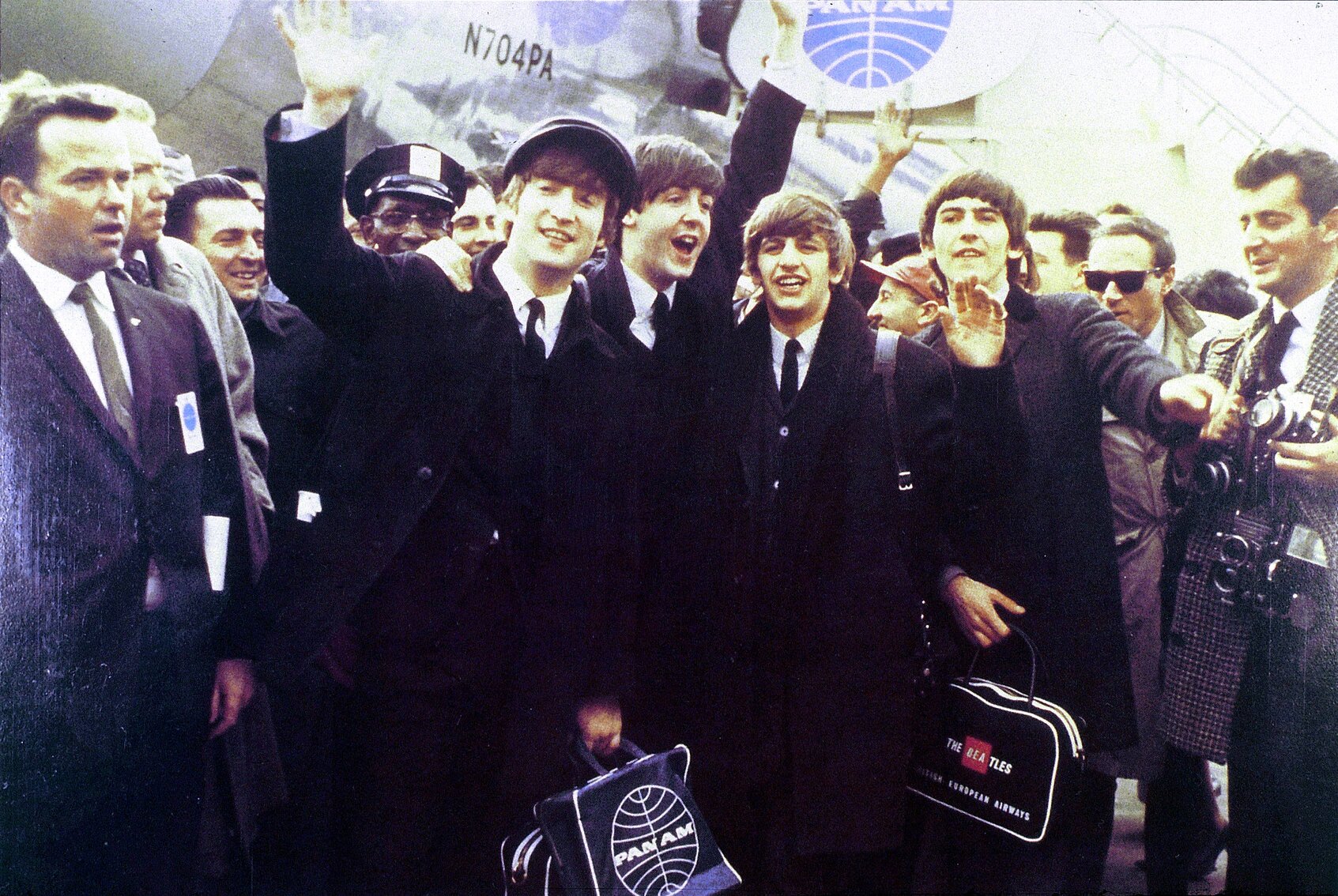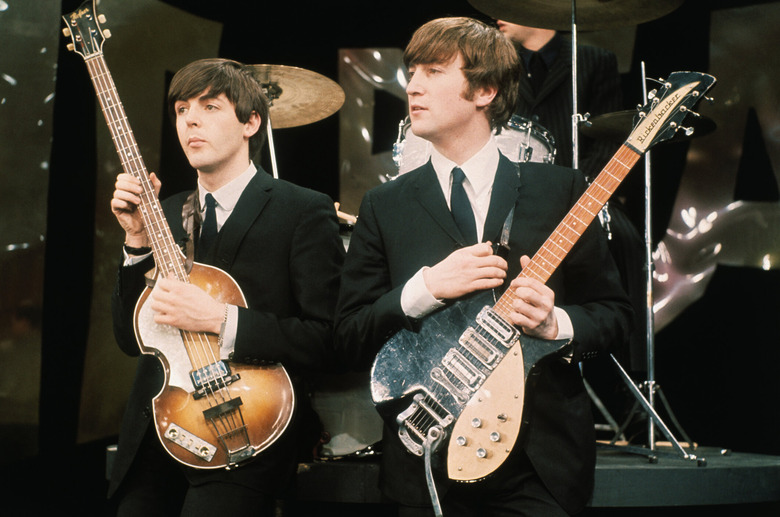Beatles Fans, Watch This Fab Hulu Movie On The 60th Anniversary Of The Band's Arrival In The US
Sixty years ago this month, when The Beatles first touched down at JFK Airport, so many screaming fans had gathered to await the band's Pan Am Flight 101 that at first the boys were confused: Is someone else famous landing, too? It took a moment to sink in that, no, the shrieking girls were there for them, a band that certainly didn't yet comprehend the durability of its fame — which was of a sort that would still remain a potent force decades later, when two surviving members would reunite to release an all-new Beatles track with the help of AI.
Ringo Starr told me years ago that when he and the other three were descending into New York City on that day in 1964, it felt like the Big Apple was extending some kind of invisible embrace up to their plane — as if the city was calling out to the boys to 'come on down, we're ready for you.' The main purpose of the band's US arrival was an appearance two days later on The Ed Sullivan Show, which became nothing short of a pop culture milestone. More than 73 million viewers watched that broadcast, or about four times as many who watched the Game of Thrones finale.

As a lifelong Beatles fan, I'm of the opinion that a great way to reminisce about this era in the band's rocket ship ascendance to superstardom is by watching (or re-watching) Eight Days a Week, Ron Howard's documentary about The Beatles' touring years. Those years, as you can see in all the black-and-white footage of screaming hordes of girls, stoked the phenomenon known as Beatlemania, creating such insanity around the band's live shows that they ultimately decided to quit touring for good and focus exclusively on the studio for the remainder of their run.
The documentary, just shy of two hours, is jam-packed with concert footage as well as lots of wild scenes from the day they arrived at JFK.
I read somewhere that if you took all of the original music The Beatles released over the course of the band's tenure, setting aside compilation albums and so forth, and you then played it all back-to-back, you'd have something like eight hours of music. Which, when you put it like that, really brings into stark relief how incredible of a story this is. Eight hours that henceforth changed the way people looked, thought, dressed — and, of course, the kind of music they listened to.
No wonder, exactly sixty years later, fans are still getting misty-eyed at some of the words to the band's newly-released final track ("Now and then / I miss you").
